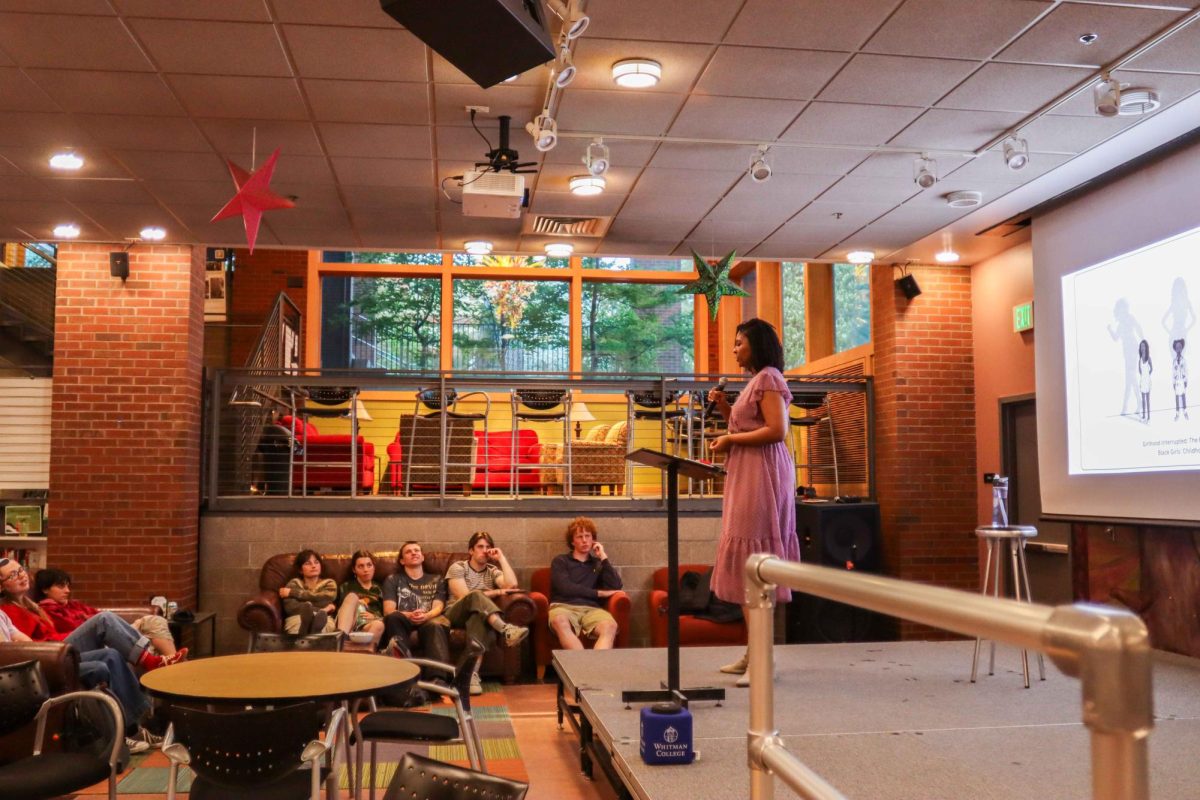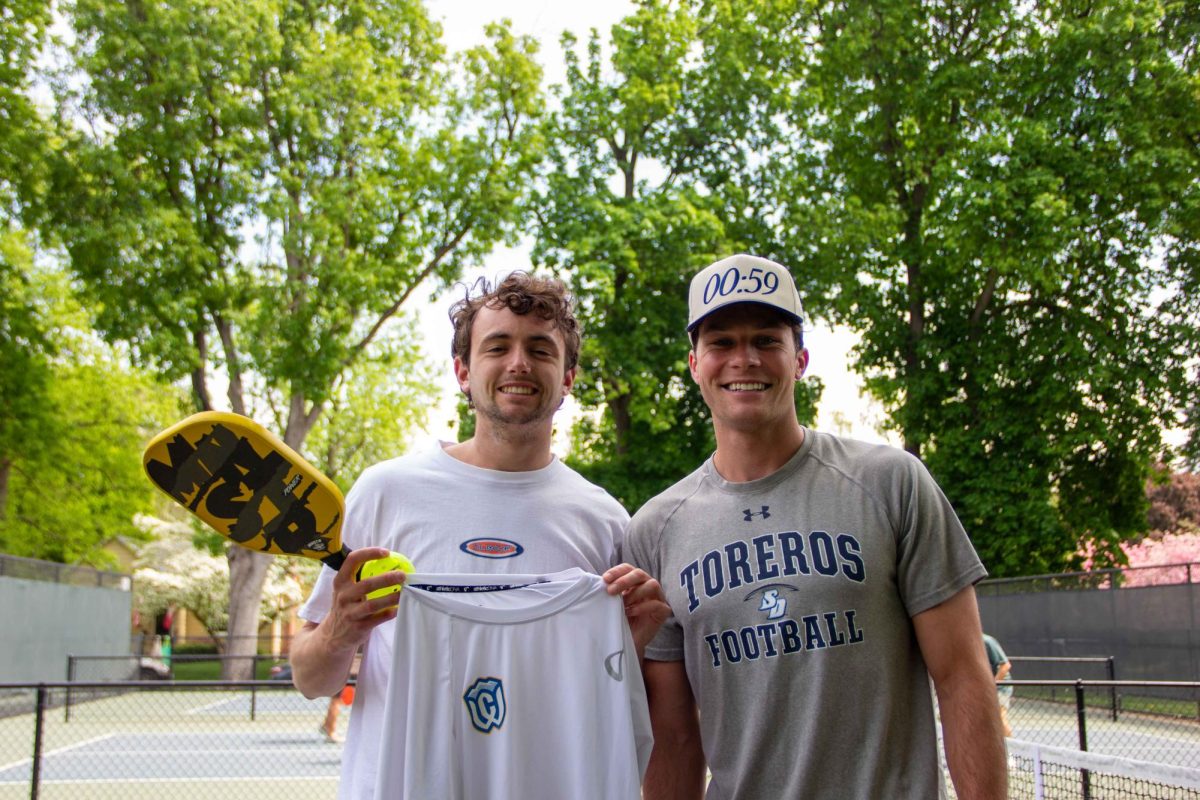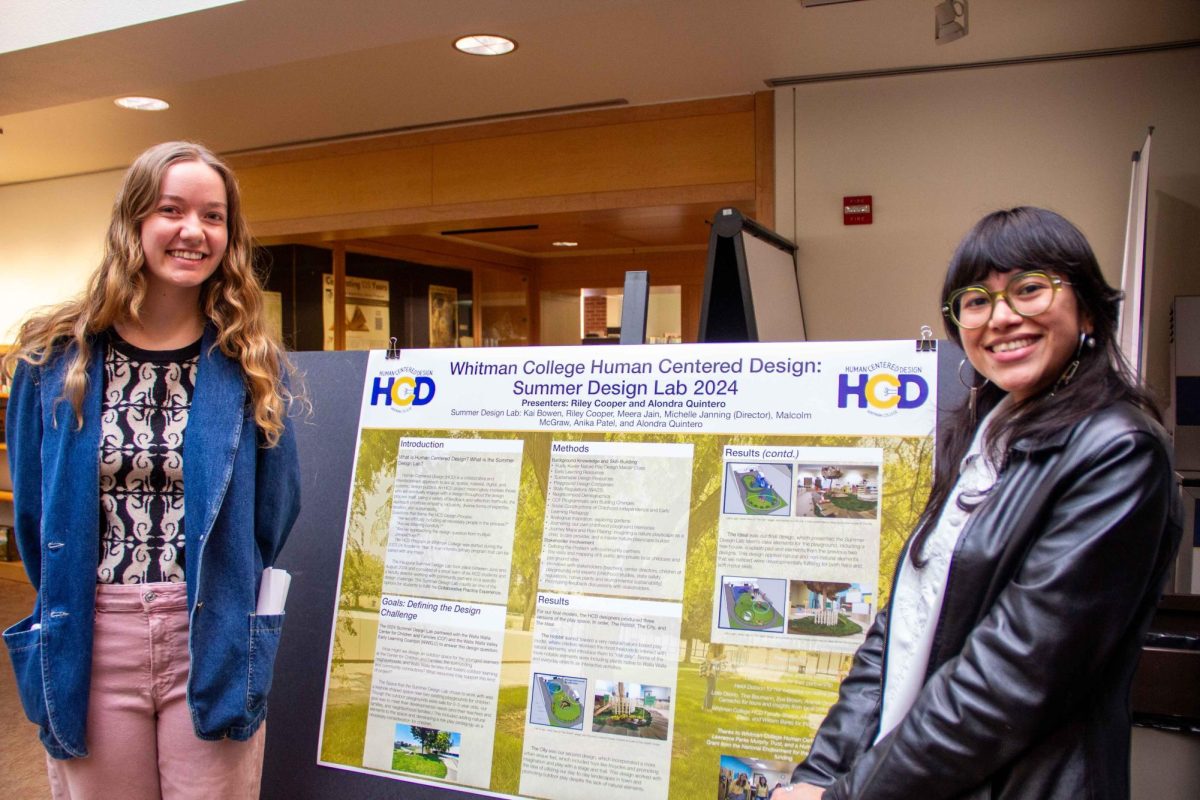Nearly a fifth of Whitman is first-generation working class (FGWC) and Whitman has implemented numerous programs to ease the transition to college and reduce the pressure of class barriers that prevent equitable education.
FGWC students have their own affinity group and Natalie Pacheco, a sophomore Rhetoric, Writing and Public Discourse major and FGWC student coordinator, explained that the college’s support for FGWC students is multifaceted and takes many different forms.
“Whitman definitely provides a lot of help for FGWC students. They offer a clothing closet, a food pantry and a waiver for one-course fees per semester. This is a major help for FGWC students and allows them to take advantage of new opportunities they may not have had at home,” Pacheco said.
For Pacheco, access to resources, institutional support and peer mentorship made the transition to Whitman easier.
“Personally, I have felt very welcomed as an FGWC student. Everyone who I have interacted with has been very understanding and supportive. The FGWC affinity group was a major help for me my first year because it provided me with a community that helped me survive my freshman year,” Pacheco said.
As part of the FGWC program, Tebraie Banda-Johns, director of the Intercultural Center, wants to expand the number of events catered towards recognizing first-gen students. This year, Banda-Johns led the celebration for First-Gen Day, which happens annually on Nov. 8 in recognition of the Higher Education Act of 1965 which still helps fund students’ education. First-Gen Day nationally is centered on first generation students’ valuable contributions to colleges, and the celebration at Whitman was no exception.
For Banda-Johns, celebrating first generation students also means recognizing those who have already completed their education and creating room for the broader campus community to recognize first generation students.
“We also want to honor faculty and staff members who are first-generation as well. If that resonates with them, they are more than welcome to come by. But even if you don’t identify as a first-generation student if you have your parents or your guardians who went to college before you, you’re still welcome to come and celebrate your peers who are first-gen as well. [First-Gen Day] is really about just centering and uplifting the unique cultural wealth that our first-gen students bring,” Banda-Johns said.
Jenna Ebding, a senior Politics and History double major, highlighted why these types of celebrations are needed and what being an FGWC student means at Whitman on a personal level. The unique, varied experiences of FGWC are the reason for First-Gen Day’s celebration.
“Being FGWC at Whitman College can be really strange because there is a solid network of students from the same background, but obviously it’s not the majority socio-economic background on this campus, so there is definitely an adjustment period and I’ve had my share of moments where I didn’t know, expect or understand an aspect of college life or how to maneuver college bureaucracy the way my friends from outside FGWC did,” Edbing said.
While this year is Whitman’s first First-Gen Day, it certainly will not be its last. Banda-Johns is excited to see the program continue to flourish and will be holding celebrations yearly at Whitman.
“I’m excited to see it grow and expand and get more people into it. Hopefully next year we can have stickers, and we can have more merch that says ‘I am first-gen,’ or ‘We celebrate first-gen students,’ [that] would be really cool. I’m excited to see this grow into a campus-wide celebration… [and] I hope that it becomes an annual celebration for this community. It’s important that we do traditions,” Banda-Johns said.
Students who want to be more involved in FGWC can attend any of their events or contact current FGWC leadership for information regarding the mentorship program. First-Gen Day will come back next Nov. 8 to celebrate another generation of FGWC students attending Whitman.





